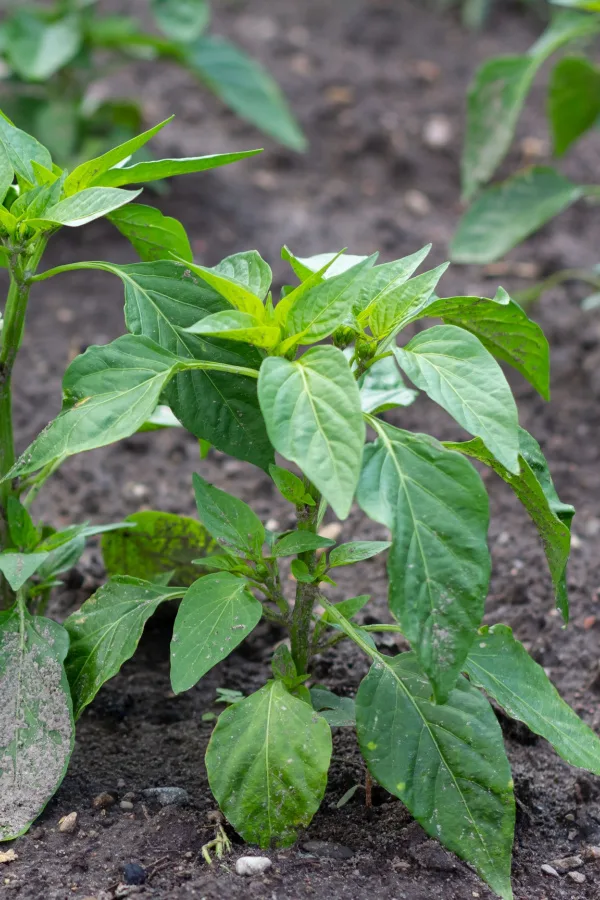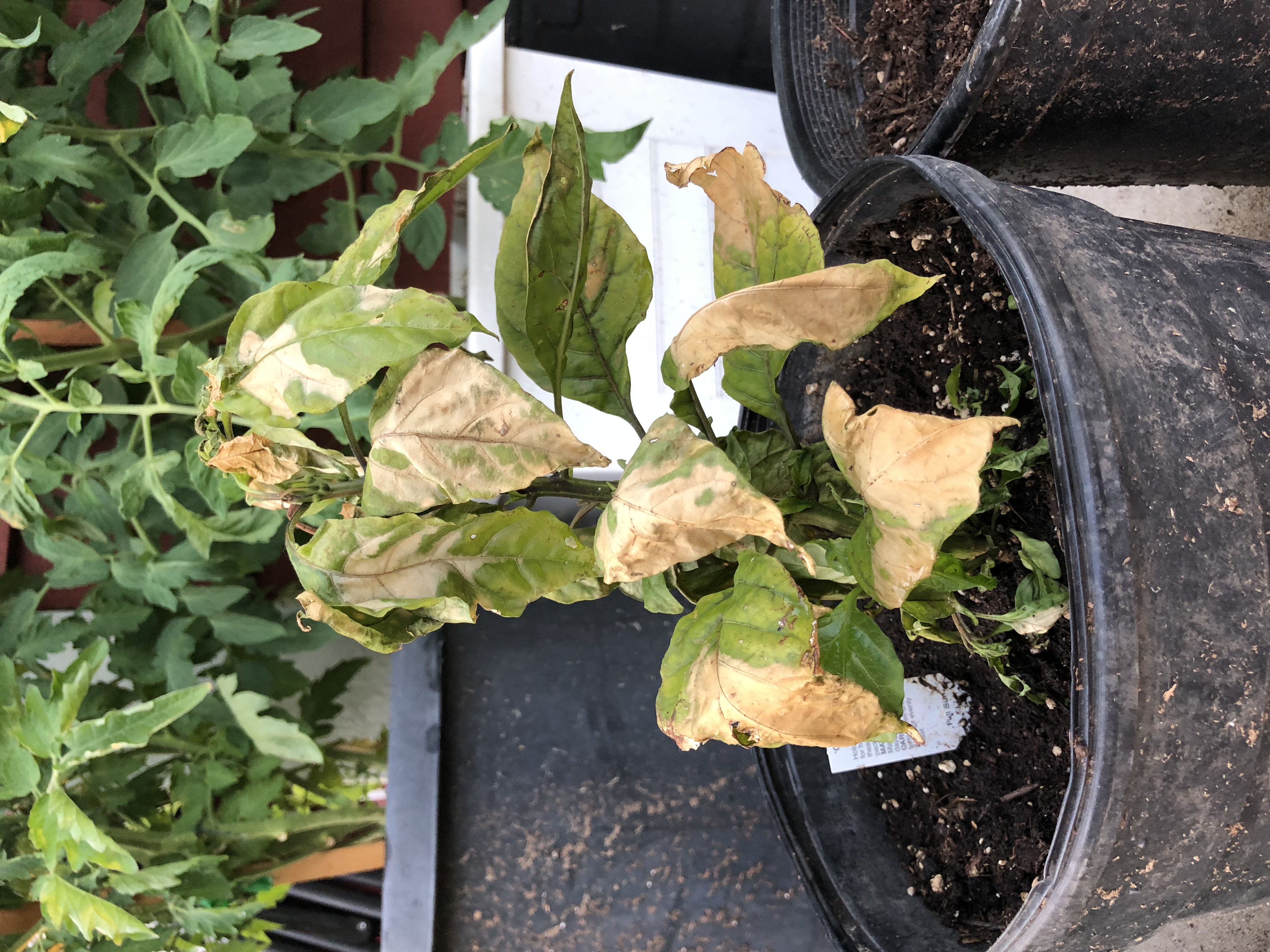Best Fertilizers for Peppers: Improve Development and Flavor with Our Top Picks
Organic Vs. Synthetic Fertilizers: Which Is Best for Nurturing Healthy And Balanced Pepper Plants?
In the world of nurturing healthy pepper plants, the selection in between artificial and natural fertilizers stands as a critical decision with far-ranging effects. While both options aim to provide essential nutrients to support plant growth, the subtleties of their influence on the soil, plant wellness, and the atmosphere spark a debate that mirrors throughout the horticulture community. Understanding the distinctive benefits and potential challenges of each fertilizer type is critical for pepper cultivators seeking to optimize their returns while preserving a sustainable and eco-conscious method.
Advantages of Organic Plant Foods
Organic fertilizers supply a lasting and environmentally-friendly strategy to beneficial pepper plants, providing crucial nutrients without using artificial chemicals. These natural plant foods are originated from natural resources such as compost, manure, bone dish, and seaweed, advertising dirt health and biodiversity. Unlike synthetic plant foods, organic alternatives launch nutrients gradually, making sure a constant and well balanced supply for pepper plants to thrive.
One considerable benefit of organic plant foods is their capacity to improve soil framework and water retention. By improving soil health, natural fertilizers promote beneficial microbial activity, which assists in nutrient uptake by pepper plants. In addition, natural plant foods decrease the danger of chemical run-off, protecting water sources from air pollution and protecting the setting.
Moreover, organic fertilizers add to lasting dirt fertility by promoting the growth of helpful dirt microorganisms. These organisms assist break down organic issue, launching nutrients in a type that is conveniently available to pepper plants. best fertilizers for peppers. By cultivating a healthy and balanced soil ecosystem, natural plant foods support sustainable pepper cultivation practices that benefit both plants and the environment
Disadvantages of Synthetic Fertilizers
Artificial plant foods, in comparison to their organic equivalents, posture numerous downsides when made use of to nourish pepper plants, affecting both plant health and environmental sustainability. One significant drawback of artificial fertilizers is their tendency to seep nutrients from the soil quickly.
Moreover, the overuse of artificial fertilizers can add to water air pollution. Excess fertilizers not soaked up by plants can get rid of into water bodies, bring about eutrophication, where algae flowers deplete oxygen degrees in the water, hurting water life. Additionally, synthetic fertilizers are normally stemmed from non-renewable sources, such as nonrenewable fuel sources, adding to carbon discharges and environmental destruction during their manufacturing.
Nutrient Absorption Contrast
Effective nutrient absorption plays an essential duty in the overall health and wellness and development of pepper plants. When comparing organic and artificial plant foods in terms of nutrient absorption, organic plant foods have the benefit of offering an extra balanced and slow-release resource of nutrients (best fertilizers for peppers). Organic plant foods include a selection of macro and trace elements that are not only valuable for the plants but likewise advertise healthy soil microbial task, which aids in nutrient uptake. On the other hand, artificial plant foods usually give a fast launch of nutrients, which can result in seeping and runoff, resulting in reduced nutrient absorption prices by the plants.
In addition, natural plant foods boost dirt framework and water retention ability, allowing pepper plants to gain access to nutrients more successfully. This improved dirt high quality facilitates root development, allowing much better nutrient absorption. Synthetic plant foods, although originally enhancing plant development because of their high nutrient concentrations, may hinder long-lasting nutrient absorption by degrading soil wellness with time.
Ecological Effect Considerations

On the other i was reading this hand, artificial fertilizers, although often even more instantly readily available and concentrated to plants, can have detrimental results on the atmosphere otherwise applied correctly (best fertilizers for peppers). Their manufacturing needs high energy inputs, causing greenhouse gas exhausts and contributing to environment modification. The drainage of excess artificial plant foods can contaminate water sources, leading to eutrophication and damaging water ecological communities.
Ideal Fertilizer Practices for Peppers
When feeding pepper plants, maximizing nutrient uptake and minimizing environmental effect are crucial factors to consider. To accomplish this, it is important to follow finest plant food techniques customized to the details needs of pepper plants. One essential method is to carry out a soil examination prior to applying any plant foods. This examination can figure out the pH level of the soil and identify any nutrient shortages, assisting you in choosing one of the most ideal plant food solution.
One more vital technique is to fertilize pepper plants at the right time. Normally, peppers take advantage of getting plant food at planting and then again when they start to flower. Over-fertilizing can result in nutrition inequalities and damage the plants, so it is crucial to follow recommended application prices.
Additionally, picking a balanced plant food with an NPK ratio that fits pepper plants' requirements is fundamental. Eventually, combining natural and synthetic fertilizers deliberately can help support healthy pepper plants while lessening environmental effect.
Conclusion

Organic plant foods provide an environmentally-friendly and sustainable technique to beneficial pepper plants, supplying vital nutrients without the use of synthetic chemicals. Unlike synthetic fertilizers, natural alternatives launch nutrients slowly, guaranteeing a stable and well balanced supply for pepper plants to thrive.
Synthetic fertilizers, in comparison to their natural counterparts, position various negative aspects when made use of to nurture pepper plants, affecting both plant health and environmental sustainability. When comparing organic and artificial fertilizers in terms of nutrient absorption, organic fertilizers have the benefit of supplying an extra well balanced and slow-release resource of nutrients.Furthermore, organic fertilizers enhance soil structure and water retention capability, enabling pepper plants to gain access to nutrients a lot more successfully.